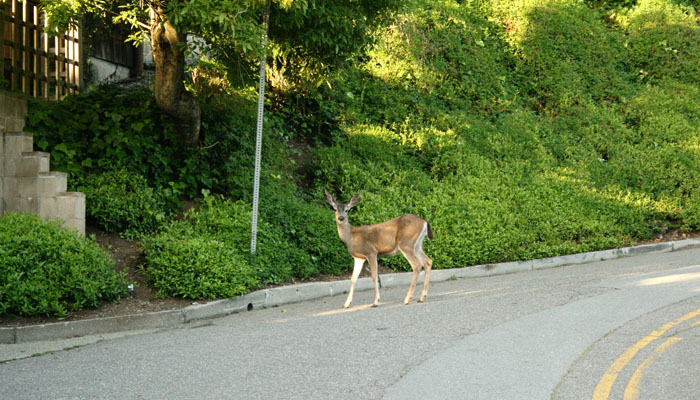By: Leah Moskovich, DailyCal

According to Reginald Barrett, a UC Berkeley professor of wildlife biology and management, the deer, which wander as far down from the hills as the North Berkeley BART Station and as far west as Sacramento Street, become aggressive near dogs or when a doe is protecting her fawn.
"Every time we call (the Department of Fish and Game) about these incidents, they say it's normal behavior," Martinucci said.
Barrett said the urban environment in Berkeley is especially hospitable for deer because there is little to no predation and plenty of vegetation from residents' gardens.
"It might be surprising to people that the deer population density is higher in the city than in Tilden Park," Barrett said.
In response to the attack on Lopus, a Thousand Oaks Neighborhood Association meeting was held in May and Roxanne Bowers, a warden for Alameda County from the Department of Fish and Game, offered advice regarding wildlife intrusion.
Residents were advised to replace all plants of interest to deer with deer-resistant plants, to keep any fallen fruit from remaining on the ground and to carry umbrellas as weapons when walking through their neighborhood.
For Lopus and other residents, this advice was not helpful.
"I don't think my attack was a fluke, and I think the advice that was offered to us was really absurd," Lopus said in an e-mail.
Residents can obtain "depredation" permits from the Department of Fish and Game to have an individual deer removed via entrapment, but these permits are rarely issued and do not help the ongoing issue, Barrett said.
"Depredation permits are an example of one short-term solution," he said. "Currently, there is no definite answer."
